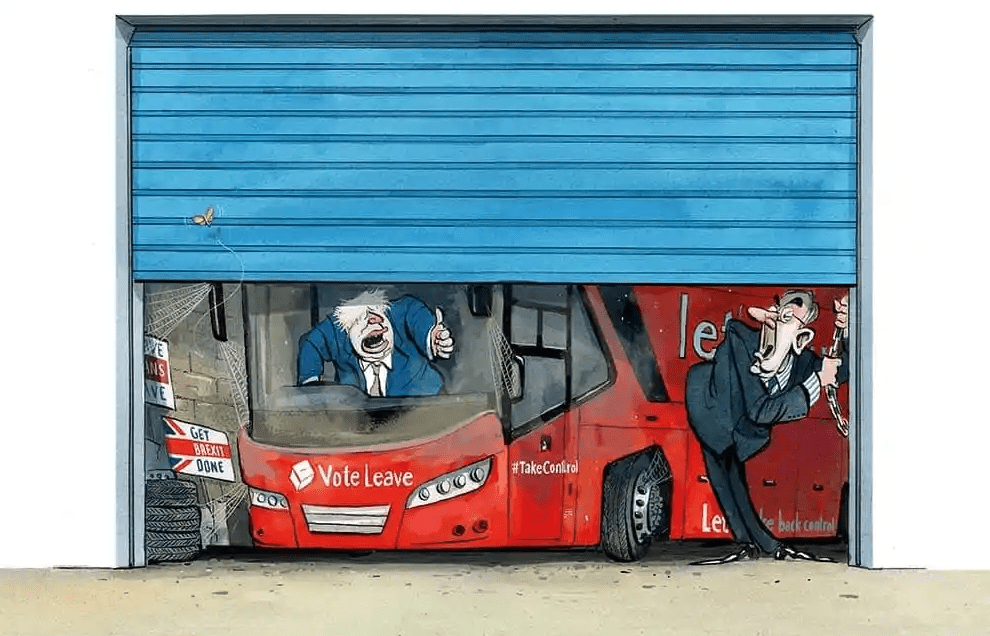Toby Young has narrated this article for you to listen to.
This week the Welsh parliament has been debating a law that would ban politicians from lying. Assuming it ends up on the statute books, any member of the Senedd, or candidate standing to be a member, found guilty of the new criminal offence of ‘deception’ will have to give up being a politician for at least four years. What could possibly be wrong with that, you ask?
The vital question, as with all efforts to ban bad speech, is who decides? After all, part of the art of being a politician, dating back at least as far as the Roman Senate, is to massage the truth to promote whatever side of the argument you’re on. That doesn’t mean you’re at liberty to make things up out of whole cloth, but most successful politicians operate in the grey zone where the rules are a bit fuzzy. They tiptoe up to the blurry line, but rarely venture all the way across to the other side. In 99 per cent of cases in which politicians are accused of lying, it’s not an open and shut case.
The bill’s defenders acknowledge that judging whether a politician is guilty of lying will be tricky
Take the infamous Vote Leave battle bus which claimed Britain was shelling out £350 million a week to the EU. Was that a lie? Yes, say the advocates of this new law, singling it out as the sort of egregious dishonesty that politicians shouldn’t get away with. But was it a lie? Defenders of the figure, such as Boris Johnson, said it was calculated by dividing our annual contribution to the EU budget by 52, but critics pointed out that this failed to take into account the UK’s rebate – roughly £4 billion a year – and the money the EU spent on subsidising the UK’s public sector (another £4 billion).
Ah, said Boris, but we don’t control that £8 billion, so if we leave the EU we’d take back control of £350 million a week, even if we’re not technically writing a cheque for that amount. Wait a minute, said the critics. The annual rebate cannot be scrapped without the UK’s consent, so we do effectively control that, even if we don’t control the subsidies. Round and round the argument went, with Leavers thinking it was true – or at least no more economical with the truth than claims made by their rivals – and Remainers convinced it was an outrageous lie.
So would Boris have had his collar felt if the Welsh bill had applied in the rest of the UK at the time? According to its proposer, the former Plaid Cymru leader Adam Price, politicians will be exempt from prosecution if they’re stating their belief or opinion. But that doesn’t help us here, since Boris– or anyone else accused of lying under this new law – would say he firmly believed what he was saying, even if his opponents disputed it.
The defenders of the bill acknowledge that judging whether a politician is guilty of lying won’t be straightforward, but say that will be a matter for the courts, which are used to deciding whether a person is telling the truth. It’s not clear, however, how they’ll be able to resolve these particular disputes objectively and impartially, given that their decisions will be irreducibly political. Ultimately, it will come down to the normative values of the judges. That wouldn’t be a fatal flaw if there were a constitutional process for ensuring there was a balance of political views on the bench, as there is in the United States, but no such mechanism is being proposed in the bill. On the contrary, the fate of Conservative politicians accused of lying may be decided by judges who include their pronouns in their bios.
The Welsh bill is the latest salvo in an ongoing campaign being waged by activists of various stripes to ‘clean up’ British politics and ‘raise standards’ in public life. They want to do this by making politicians accountable, although not to the constituents they’re supposed to be serving, to whom they’re already accountable. Rather, the people they think should be sitting in judgment on elected politicians and enforcing various ‘codes’ and ‘principles’ and whatnot are courts, civil servants and parliamentary commissioners – unelected officials, in other words.
As in the Welsh case, the pretence is always that these investigations and hearings can somehow float free of the grubby business of politics, when in reality they are just a device for one political tribe – the professional managerial class – to impose its will on the other – the populist disruptors. These are reforms designed to ensure that something like Brexit can never happen again.
Don’t be fooled that the Welsh bill is a benign effort to keep politicians honest. On the contrary, it’s an assault on the principle of parliamentary sovereignty.








Comments